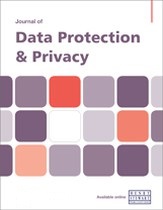IoT legislation's loopholes: The governmental blessing for statutory surveillance?
Abstract
Little has been discussed in the context of the material scope of privacy and data protection legislation. The rapid development and progress in the design of internet-connected wearables, appliances or movables — the Internet of Things (IoT) — and biotechnology and bionics that want to connect the human body with computers — Internet of Body (IoB) — and Artificial Intelligence (AI) in general, should bring more focus to the actual value of existing laws. Are the available legal tools sufficient against private and public actors? Are they enforceable and indeed being enforced? Do citizens trust their governments and vice versa? Or are we at the threshold of social credit scoring dystopia? These questions arise when reading current legislation and observing its real-life application. The picture is grim — in many places, the privacy and data protection laws are non-existent or insufficient. In the USA, the focus is more on developing new technologies than securing people's rights. In the European Union, the situation is seemingly better. Still, the facade is full of cracks when taking a closer look. The loopholes can be found on every level: in member states' constitutions, in the treaties, charters, regulations and directives. It is time to rethink the current approach before the pretence of democracy kills fundamental freedoms.
The full article is available to subscribers to the journal.
Author's Biography
Paweł Kuch Attorney at Law, member of the Polish Attorneys at Law Bar and Ph.D. des. on the Faculty of Law, Doctorate RWF, at the University of Zurich.
